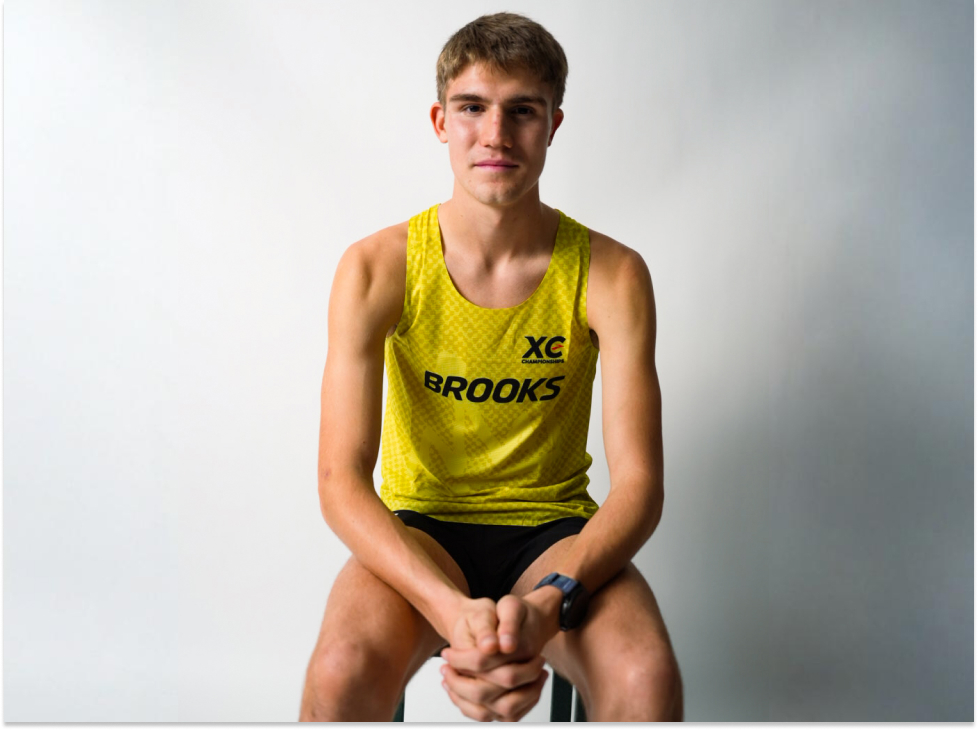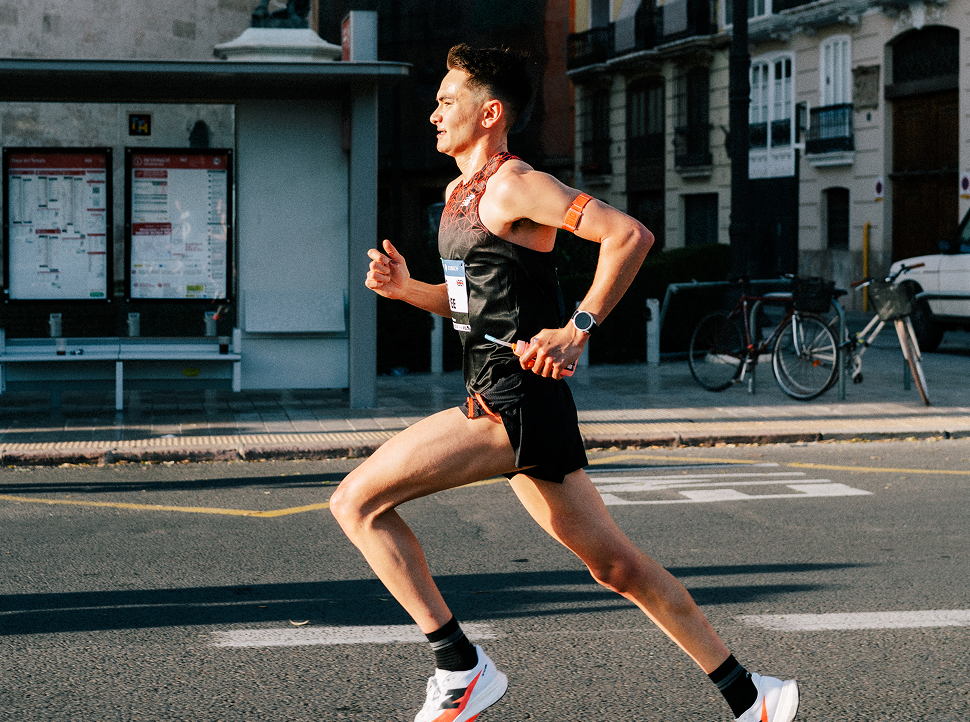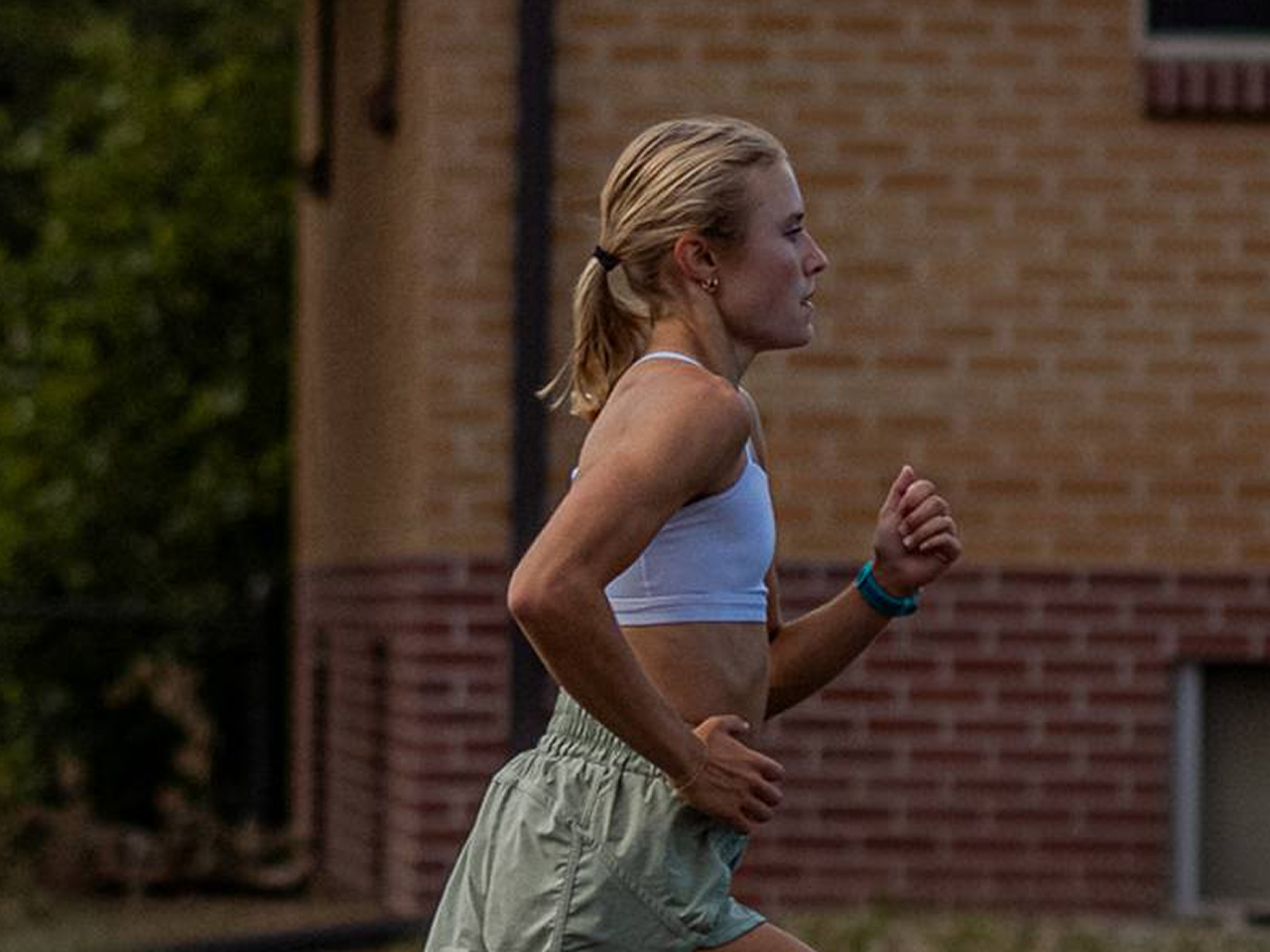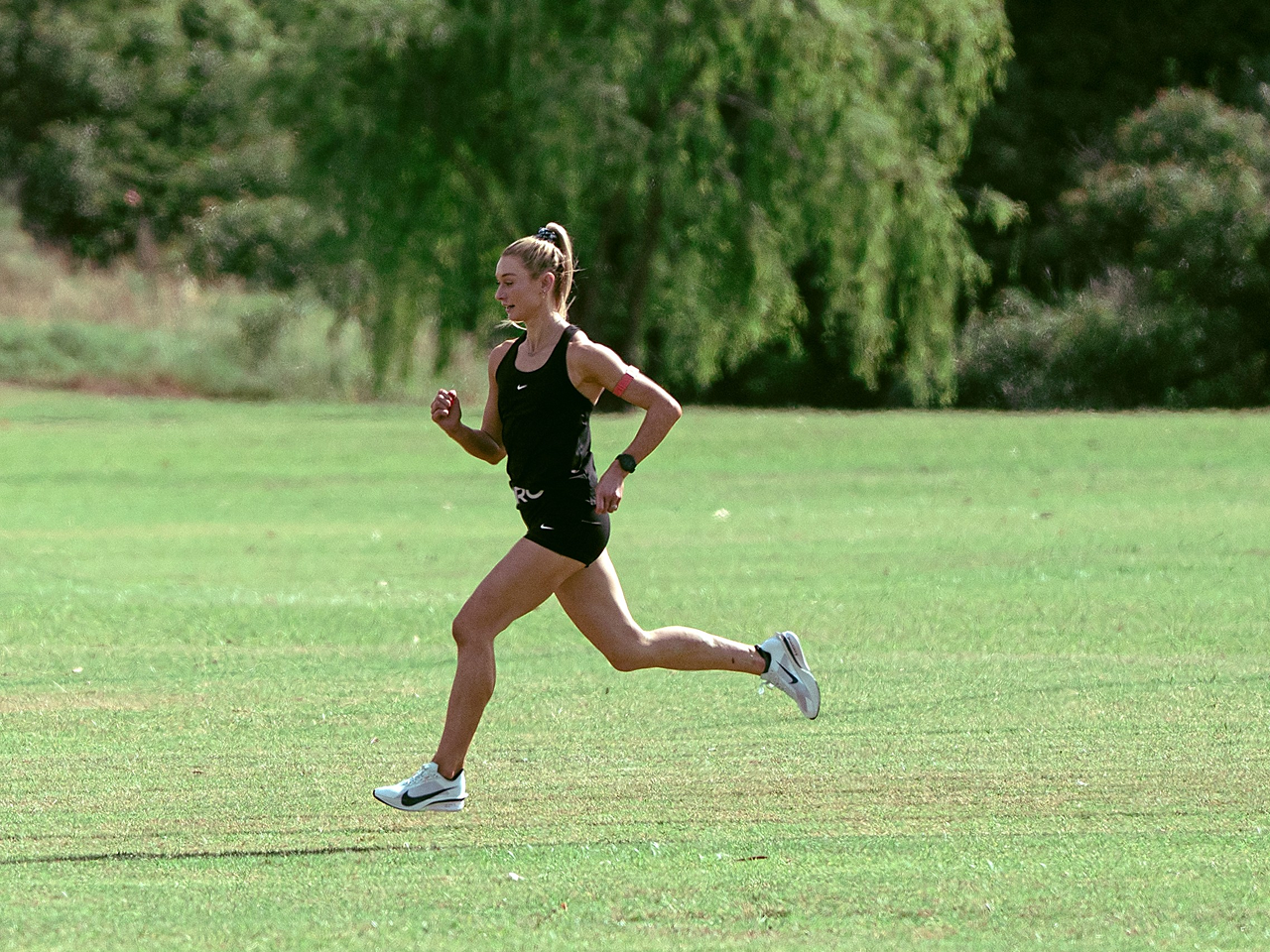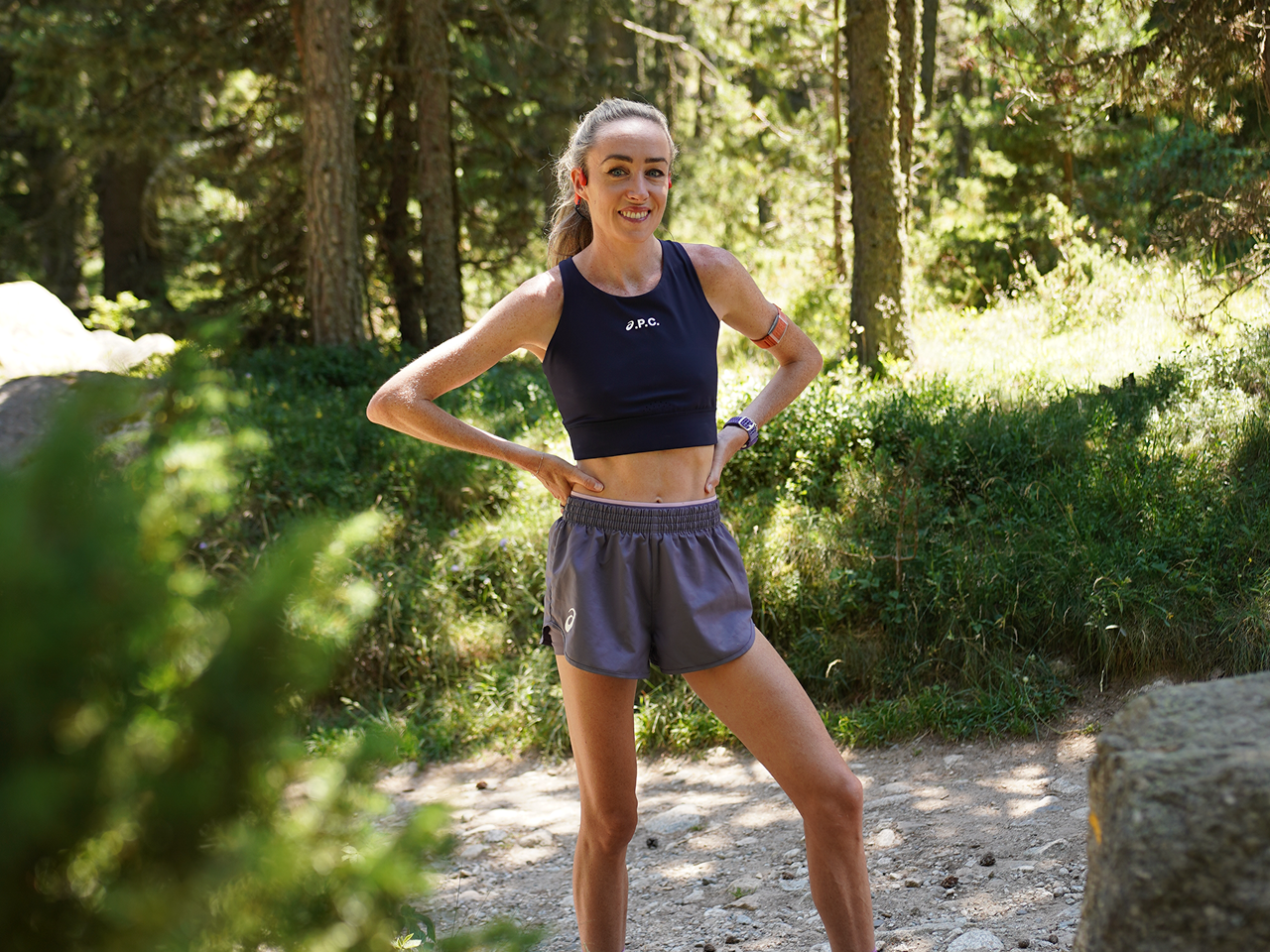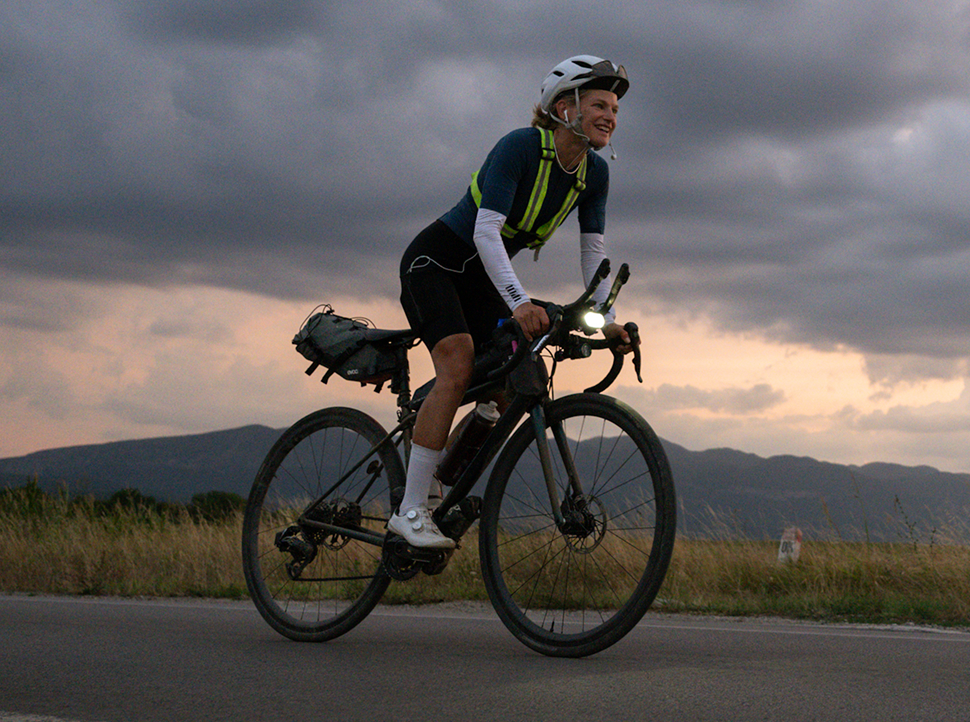Winter training is rarely ideal, but for Alex Fisher, it was all about adaptation. With relentless snow and wind, he had to get creative. Instead of crisp track sessions, he logged workouts on the roads, relying on GPS-marked distances and sheer determination. Through it all, he put in the work, set a personal best, and gained valuable experience—lessons that will shape his outdoor season.
Watch: PACE 3
Accessory: COROS Heart Rate Monitor
Analysis: Training Hub
Winter Training Challenges
With his school’s track covered in snow for much of the indoor season, Alex Fisher and his team had to get creative. Road workouts replaced track sessions, with his coach marking distances using cones. "Those workouts were all on a road where my coach had to measure it out with a cone," Fisher explained. "From the COROS GPS, we were able to move the cones a little bit to make it more accurate."
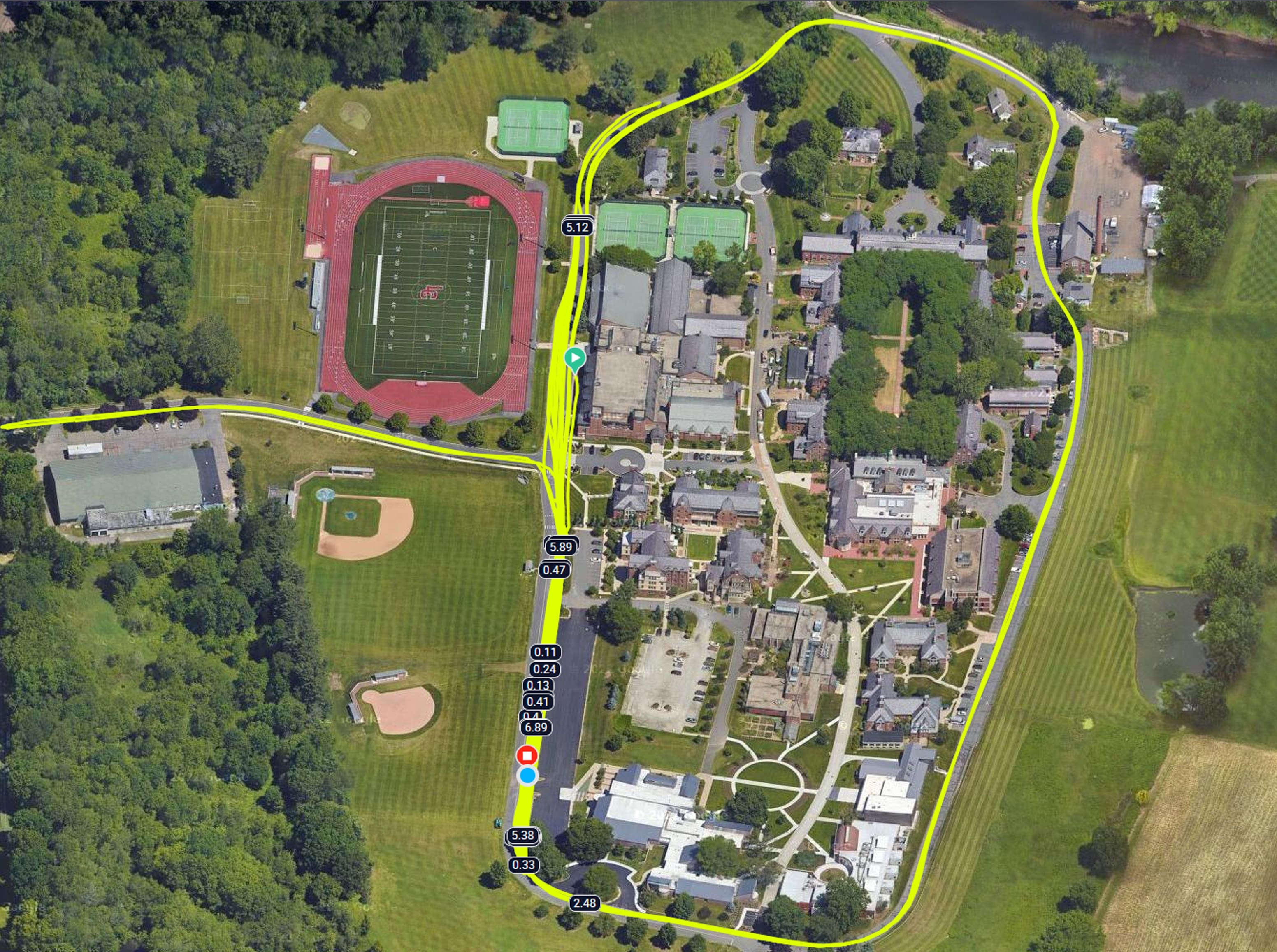
When the track is iced over, Alex completes his interval workouts on a nearby road
Wind and cold added another layer of difficulty. Some intervals had drastic pace differences depending on the direction he was running, and layering up to stay warm often meant sacrificing some mobility.
“For most of my easy runs for a long stretch, I basically had a winter coat on and full tights with sweatpants on top." Fisher said. "The heart rate arm strap made it easy to accommodate for the increased effort. If my heart rate's too high, I should slow down a little bit, but I do acknowledge that it's a little bit harder with all the clothes on."
Building Strength, Breaking Barriers

One of Fisher’s biggest sessions of the season combined both tempo and race-pace work—a strategic move to maximize efficiency in limited training windows. He started with a 2-mile tempo, followed by 5x400m at 60 seconds, and closed with another mile at tempo effort. The session also included plenty of jogging for recovery, making it a high-volume day.
Despite the winter setbacks, the work paid off. At the Armory in New York City, Fisher ran 8:58 for 2 miles—a new personal best.
"We came through the mile in 4:31, and from there, it was just me against the clock," Fisher said. "I started increasing the tempo and came away with a PR. But at the same time, I wasn’t really going into it fresh." Instead of prioritizing short-term freshness, Fisher focused on long-term development, knowing his peak would come outdoors.
Learning from Experience
Every season brings new lessons, and this winter was no different. Even after early success as an underclassman, Fisher continues to refine his approach through trial and error.
"Through a lot of my experience I've been able to figure out what works for me. That goes for a lot of things, like meal prep, nutrition, foam rolling and recovery, what shoes work for me... all that. A lot of trial and error, experimenting and stuff." he said. "As much as you want to research these things online, everyone's body is different. A lot of it depends on the experience of how your body reacts to things."
As a junior, he has placed a greater emphasis on strength training and fine-tuned his pre-race warm-ups. "This winter, I really realized the difference that it makes to make sure your legs are really, really warm before actually getting into a race."
Now an upperclassman, Fisher also feels the shift in expectations. “Before, it was always, ‘Oh, he’s only a freshman, he’s only a sophomore.’ But now I’m a junior, and I'd say this is the first year where I’m really expected to compete and compete well.”
To manage this, the focus for Alex remains on effort and training, rather than lofty time goals. Still, he embraces racing against more experienced competitors. “Competing against older guys is always fun because it’s really low stakes for me. What do I have to lose?”
Looking Ahead to Outdoor Track
With a strong aerobic base built over the winter, Fisher is eager for better conditions and faster times. He feels more prepared than ever heading into outdoor track.
"I think I'm at the best base fitness I’ve had in a while," Fisher said. "That’s especially important as we transition outdoors, where we can finally get in quality speed sessions without the risk of cold-weather injuries."
He’s targeting key meets, including the Boston Elite Scholastic Mile, but isn’t locked into chasing specific times. Instead, his focus remains on consistent progress, smart racing, and trusting the work he’s put in.
With winter training behind him and the outdoor season ahead, Alex is ready to see just how far his fitness can take him.
Alex is a member of COROS NextGen, a program which aims to work with elite high school athletes as they push their boundaries to become the next generation of elite distance runners in the U.S. For any high school athlete chasing their best, head to www.coros.com to learn more on products, training tips, and insights from athletes of all levels.

/filters:quality(90)/fit-in/970x750/coros-web-faq/upload/images/45fbef0a700da60b4b2cebaa65be44c9.png)
